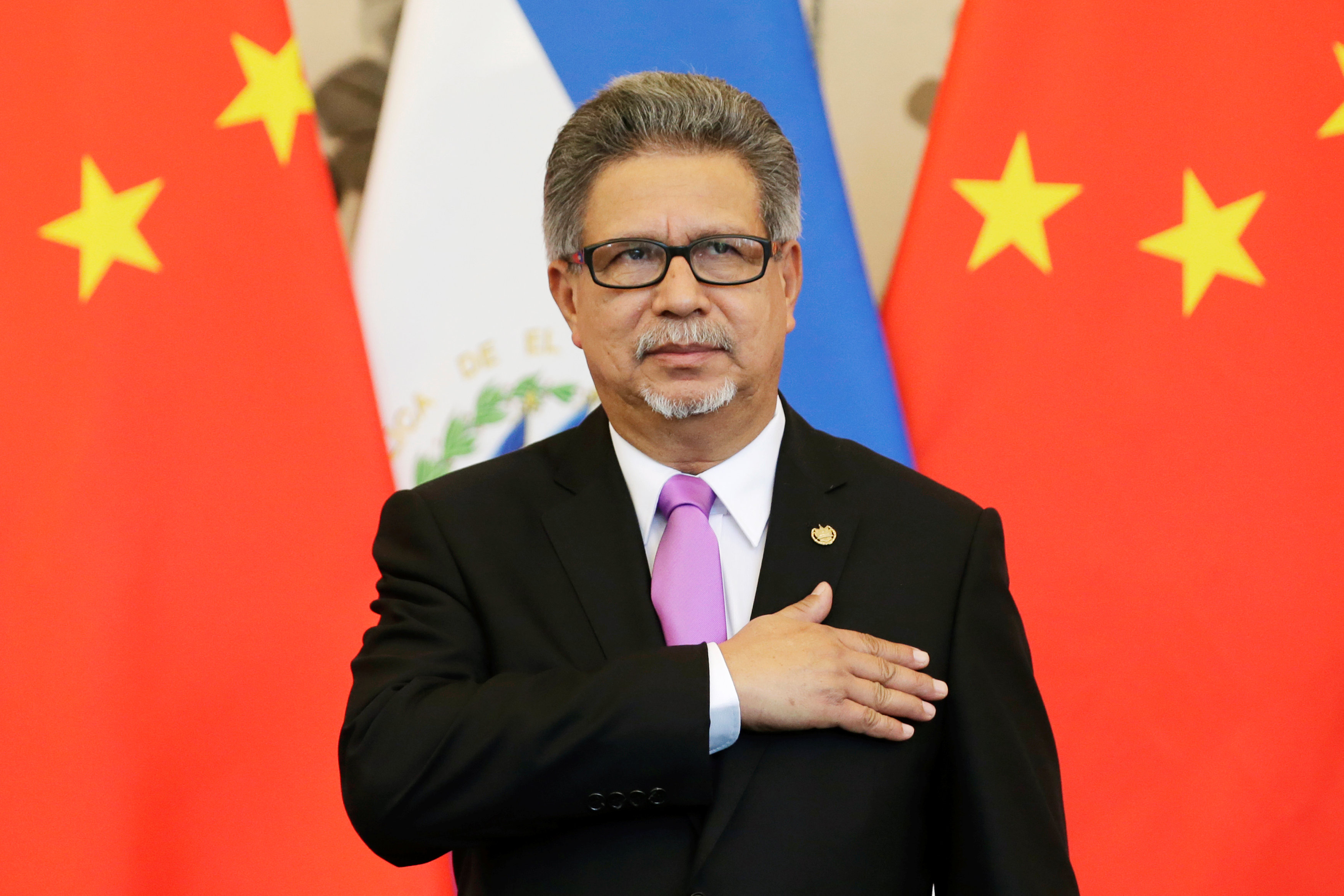Taiwan loses El Salvador to China in fresh diplomatic setback
Taiwan loses El Salvador to China in fresh diplomatic setback
BEIJING/TAIPEI (Reuters) - Taiwan lost another ally to Beijing on Tuesday when diplomatic ties with El Salvador were severed, the third country to swap allegiances from the self-ruled island to China this year.

Chinese Foreign Minister Wang Yi and El Salvador’s Foreign Minister Carlos Castaneda attend a signing ceremony to establish diplomatic ties between the two countries, at the Diaoyutai State Guesthouse in Beijing, China August 21, 2018. REUTERS/Jason Lee
Taiwan now has formal relations with just 17 countries worldwide, many of them smaller, less developed nations in Central America and the Pacific like Belize and Nauru.
“We are not willing to continue with the money competition with China,” Taiwan Foreign Minister Joseph Wu said at a press conference.
He said El Salvador had been continuously asking for “massive funding support” since last year for a port development, but Taiwan was unable to assist with the “unsuitable project” after assessment.
“Pressure from China would only make Taiwan more determined to continue our path of democracy and freedom,” he said.
“China’s rude and unreasonable behaviour will certainly have negative impact to cross-strait relations. This is also not how a responsible country should behave.”

Speaking in Beijing, the Chinese government’s top diplomat State Councillor Wang Yi said El Salvador had made the right decision.
“I’m confident that the people of El Salvador will feel the warmth and friendship of the Chinese people and derive tangible benefits from its cooperation with China,” Wang said.
“EXTRAORDINARY OPPORTUNITIES”
Separately, El Salvador’s President Salvador Sanchez Ceren announced in a nationally televised speech that his government had broken off diplomatic relations with Taiwan and instead established new diplomatic ties with China.
Sanchez Ceren said the central American country, which built ties with the Republic of China government in 1933, would see “great benefits” and “extraordinary opportunities” in the new relationship with Beijing.
Taiwan’s formal name is the Republic of China, whose government fled to Taiwan in 1949 after losing a civil war with the Communists.
“We are convinced this is a step in the right direction that corresponds to the principles of international law of international relations and the inevitable trends of our time,” he said.

Taiwan has accused China of luring its friends away with offers of generous aid packages. China denies this, and says Taiwan is a part of China with no right to formal diplomatic ties with any other country.
(Graphic showing Taiwan’s political allies, tmsnrt.rs/2hpQ0xx)
The news comes as Taiwan President Tsai Ing-wen wrapped up a high-profile trip to Latin America, including stops in the United States, that drew broad criticism from China.
Tsai on Monday echoed Wu’s comments, saying the self-ruled island would not bow to pressure and that pressure would only boost Taiwan’s “determination to go abroad”.
“China will not get unification with Taiwan by luring away our allies. What China did was to humiliate Taiwan repeatedly without getting any respect from Taiwan’s people,” Taiwan’s ruling Democratic Progressive Party wrote in a statement.
El Salvador is the fifth country Taiwan will lose as a diplomatic ally since Tsai came to office in 2016, following Burkina Faso, the Dominican Republic, Sao Tome and Principe and Panama.
China’s hostility to Taiwan has grown since Tsai’s election as Beijing fears she wishes to push for the island’s formal independence, a red line for China. She says she wants to maintain the status quo.
Reporting By Jessica Macy Yu, Yimou Lee in Taipei, Philip Wen and Ben Blanchard in Beijing and Nelson Renteria in San Salvador; Writing by Anne Marie Roantree; Editing by Michael Perry
Source: Reuters World News